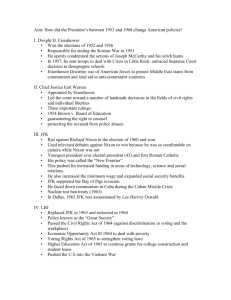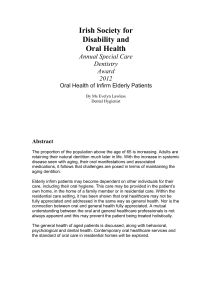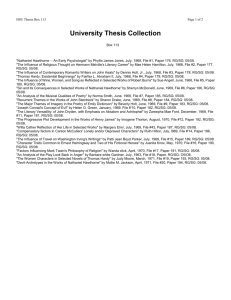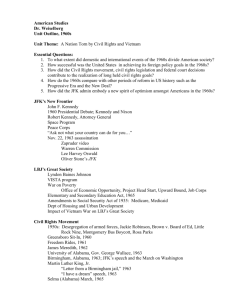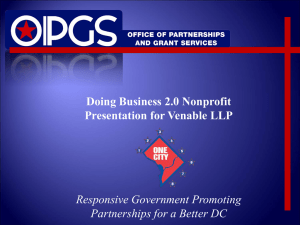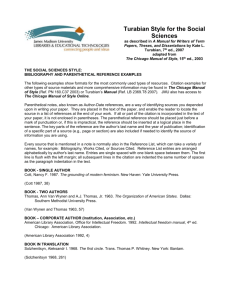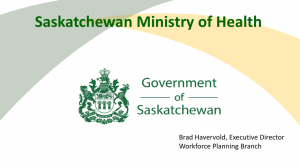JFK`s Social Policies - historyoftheamericas
advertisement
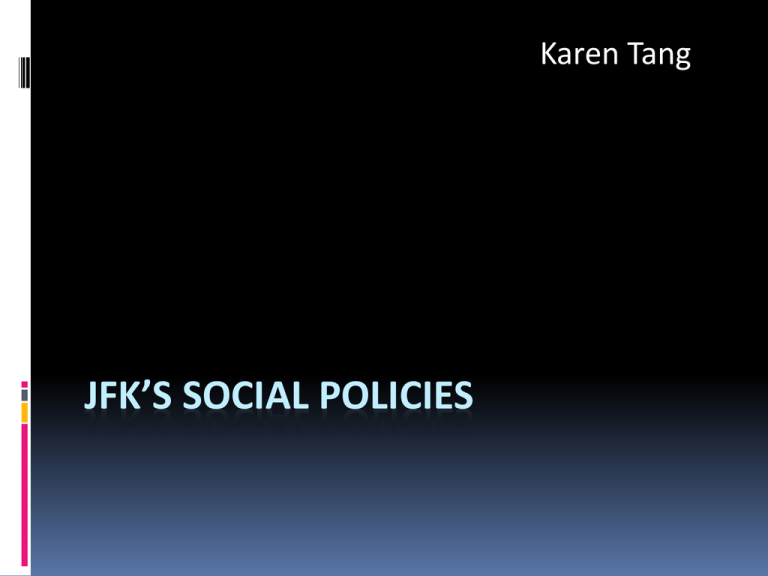
Karen Tang JFK’S SOCIAL POLICIES Did little about the poor in his first years of administration Inherited an era of wealth and growth, but many Americans still lived in poverty Only after reading Harrington’s The Other America, 40 million Americans living in poverty Senate report in 1960 estimated that 8 million had annual incomes less that $1000 1959 estimated that average rural wage was $0.5 an hour Manpower Development and Training Act 1962 $435 million for school and job based training esp. for those in automation who had lost their jobs 200K went though the schemes Proposed $2 billion public works to Congress, but was rejected area redevelopment act 1961 addresses the issue of jobs and unemployment Gave grants and loans for training , development, community facilities, help to depressed areas (i.e. Appalachia) Housing act 1961 Housing Act: helped property developers more than the poor Provides $4.88 billion in loans and grants to cities, towns and rural areas for urban renewal, public housing, elderly housing, farm housing, college housing, community facilities, development of "open space" in cities, mass transportation, home improvement, housing for moderate-income families Equal pay act 1963 Did not cover all woman, no powers of enforcement, but 171K women benefited Passed Congress without much opposition Less Successful Policies Not as successful policies: healthcare and education JFK proposed a healthcare scheme funded by payroll tax, rejected like it was 15 years ago Healthcare Focus on the elderly Affected by popular pressure The Kennedy administration encouraged a growing popular campaign organized by the senior citizens Education 1961 education proposals passed by Senate, failed to get through the House Proposed to give federal money to states for scholarships and buildings, depending on the wealth of the state Higher Education Facilities Act passed in 1963, gave $145 million grants for graduate schools in Science, language and engineering

